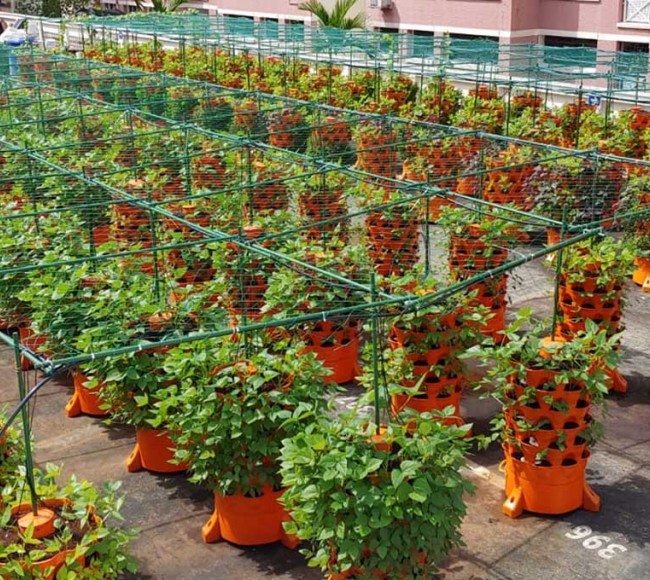
Urban farming is fast becoming a central focus for the local organizations and the Singaporean government. The need for food security during a crisis and lack of secure space to tend to farms is forcing states such as Singapore to shift to creating farms in cities to fill the gap. Since the state currently imports 90% of its food from abroad, the state aims to produce 30% of its total food by the year 2030. The plan is to have anyone who wishes to farm what they can, and the government offers grants to anyone who can yield higher amounts using technology.
The practice of urban farming is picking up in scale and sophistication as well in recent years. There are community gardens all around the city where the public can grow their own crops and sell them for an earning opportunity. Tech is also playing a crucial role in improving urban efficiency. There are regulations in place to enhance food safety by keeping track of the source of the food supplies.
The government is pushing for innovative approaches to urban farming like rooftop farming, vertical hydraulic farming and hydroponic farms on parking structures, and more. The Singapore Food Agency early this year launched seven urban farming sites on HDB multi-storey carparks. A public tender was issued for nine locations, and successful tenderers were already operational by the second quarter of 2021. Fresh produce from these farms is currently made available at nearby supermarkets. Farmer Nick from Nature’s International Commodity is one such urban farmer in Singapore.
Currently, only about 1% of Singapore’s land is used for conventional farming and is forcing people to grow more with less. But developing agriculture from scratch is not easy. Shortage of labor, competition from lower-cost economies, and scarcity of spaces are big obstacles that the state needs to overcome. With the global food demand projected to increase by more than half by the year 2050, the state needs to learn how to urge producers to grow more and much faster than before. Climate change is another threat for this island nation.
Whether you call it Singapore’s solution to sustainable self-sufficiency or a social movement, but urban farming is sure to take the city to new heights. There are a number of benefits of having farms so close to home. Urban farmers ensure that their produces is pesticide-free. They also incorporate sustainable zero-waste and energy-saving practices that have a positive impact on the environment. In addition, growing food close to the heartland cuts down on the transport costs and cuts down carbon commission. In the broader sense, urban farming in Singapore helps develop the capability and capacity of the agri-food industry and mitigate the dependency on imports. It will also serve as a buffer during a supply disruption.
Absolutely! With the increase in awareness and government grants available for urban farming, there has never been a better time to start farming. In fact, the landed house owners have embraced it with much enthusiasm -requesting for more areas dedicated for growing vegetables that they consume. This can be on the ground level or even on the attic open terrace.
If you live in a high-rise, it should not stop you from taking up urban farming in your own way. You can grow the crops you like as long as you have space, enough sunlight, and some perseverance. Whether it is the corridors, common areas, or on your balcony, you can easily set up a planting system with minimum fuss.
The National Parks of Singapore has also a yearly seed campaign that can get you started with planting some edibles at home.
Even though urban farming still has a long way to go, there are plenty of opportunities for growth with sustained effort and development. Investing in urban farming can greatly enhance the community’s knowledge of agriculture. It will help educate and inform and get people involved in the local food systems and processes. Moreover, it is also enhances social cohesiveness and community as house owners and flat residents alike spend time at the urban farms – bonding with neighbours, sharing farming tips and their various harvests.